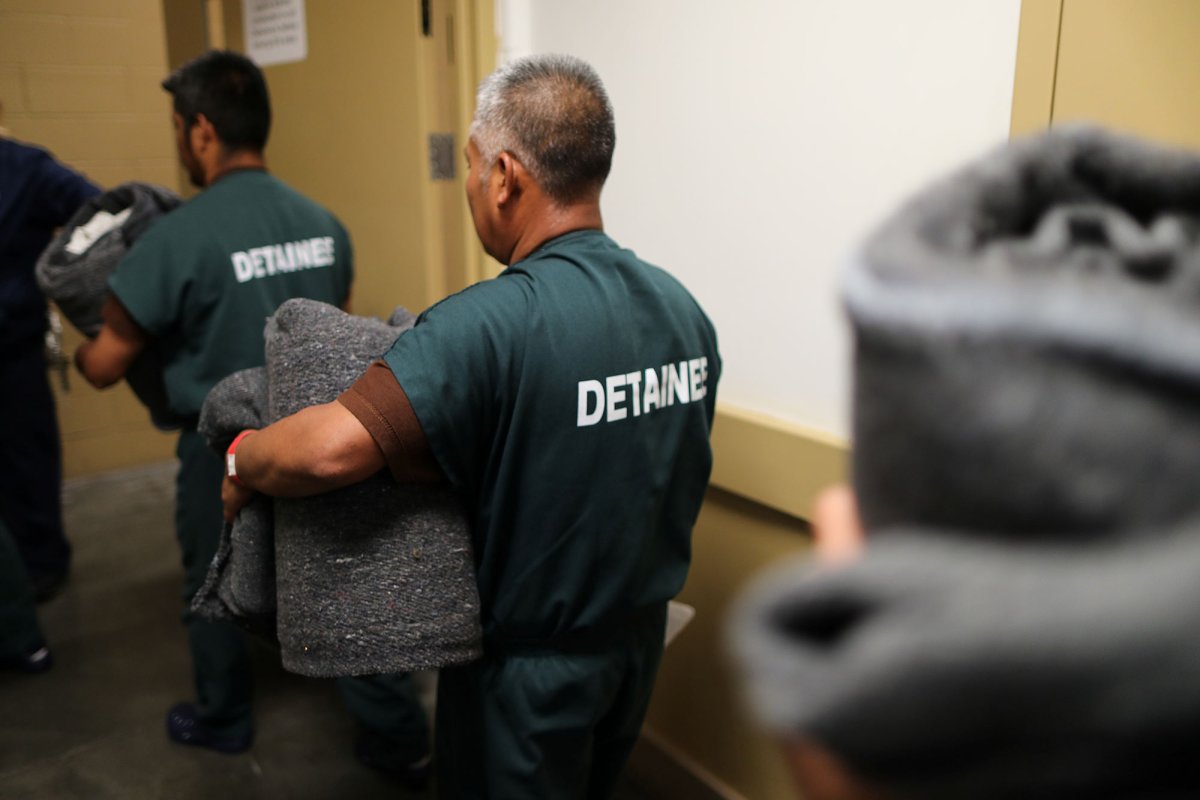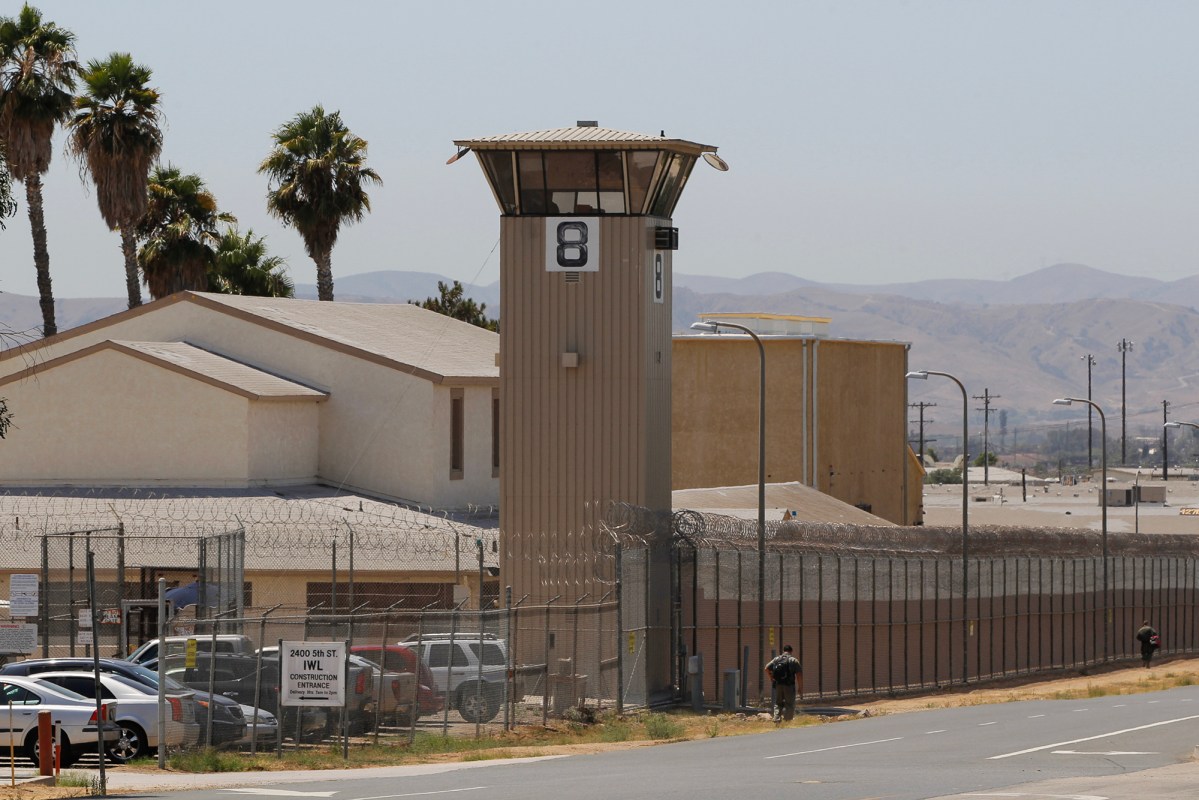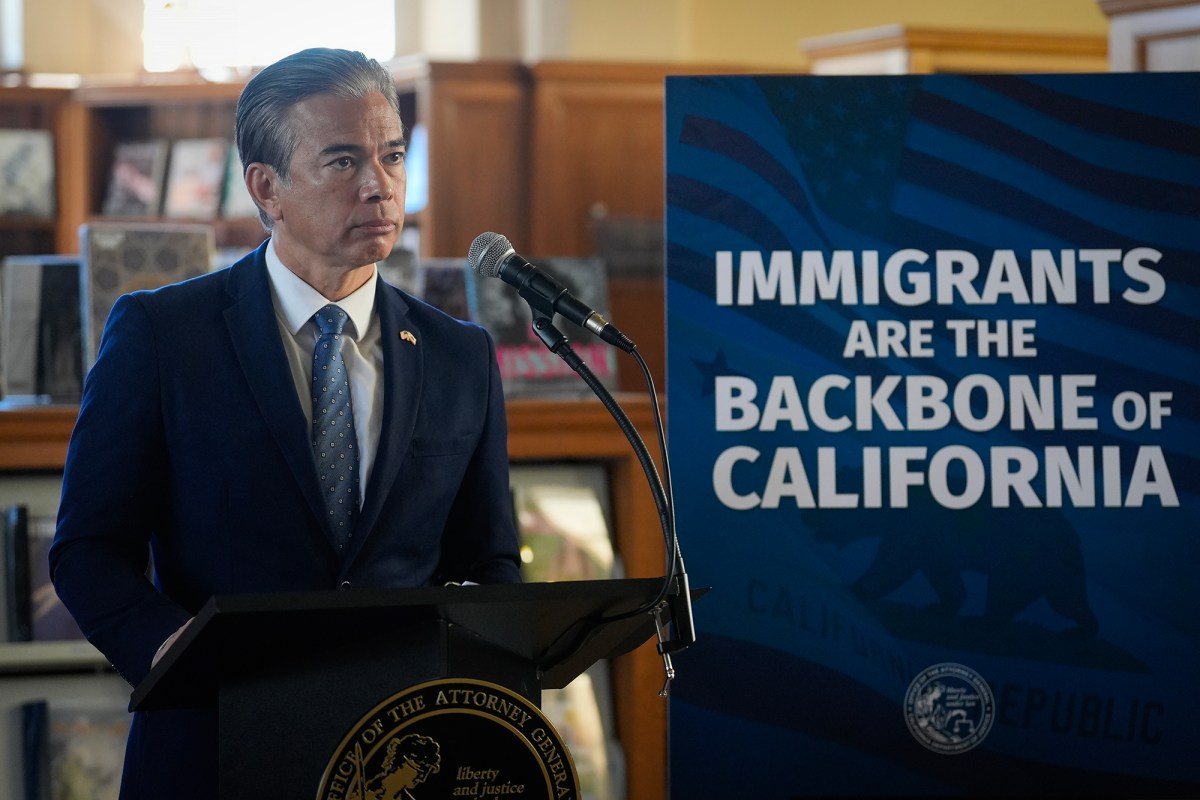In summary
A disabled immigrant’s detention underscores the shift in asylum policies at the Mexico border since President Trump took office.
Welcome to CalMatters, the only nonprofit newsroom devoted solely to covering issues that affect all Californians. Sign up for
WhatMatters
to receive the latest news and commentary on the most important issues in the Golden State.
A deaf and mute Mongolian man has spent more than four months in a Southern California immigrant detention center without the opportunity to communicate with anyone who understands Mongolian Sign Language, according to his civil rights attorney.
“He’s basically been in solitary confinement because he has not had one person actually speak to him in Mongolian Sign Language for the entirety of the time that he’s been in proceedings and detained,” said his attorney,
Alegría De La Cruz
, director of litigation for the Disability Rights Legal Center.
U.S. Southern District of California Judge Dana Sabraw this week ordered officials at the Otay Mesa Detention Center to provide him with a Mongolian Sign Language interpreter.
The judge also directed immigration authorities to redo two assessments that could affect his request for asylum. One would examine his mental health, and the other would evaluate whether he has a credible fear for his safety if he returns to his country.
“How can he meaningfully participate if he doesn’t know what’s being said and he cannot communicate?” Sabraw asked a federal attorney at the hearing on Wednesday.
Assistant U.S. Attorney Erin Dimbleby said many people don’t fully understand the legal proceedings in immigration court.
The man’s family requested that CalMatters identify him by the name Avirmed because of their fear that he could be harmed by the Mongolian government if he is returned to his home country.
Avirmed’s detention after seeking asylum underscores the sharp
shift in border policies
from the Biden administration to Trump’s.
Under Biden, asylum seekers who were not threats to public safety were often released on bond rather than being detained while their cases moved through immigration court. The Trump administration has taken a
much stricter approach
with detention numbers reaching record highs – a tactic his supporters say is working. Since President Donald Trump took office,
unauthorized border crossings have plummeted to historic lows
.
But Avirmed’s representation by the
Disability Rights Legal Center
also shows how some immigrant advocates are changing tactics in response to the Trump administration’s immigration crackdown. In this case, they’re drawing on federal disability laws that prohibit discrimination against people with disabilities by any federal program, including the immigration court system.
The Trump administration recognizes its “own power, and it can be very dangerous unless someone checks it the way the judge did,” said Sylvia Torres-Guillen, the president and CEO of the organization.
Key ICE interviews without interpreters
Avirmed left Mongolia early this year and entered the U.S.in February seeking asylum from persecution because of his disability. A 2020 assault in Mongolia left him with a traumatic brain injury that causes seizures and memory loss. He was attacked because of his disability, according to court records. His family declined to say how he reached the U.S.
A legal complaint filed on his behalf says Avirmed gave border officials a letter written in Mongolian and translated into English, notifying them of his disability and his intent to seek asylum. Customs and Border Protection agents refused to read or accept the letter, his attorneys allege in the complaint against the Department of Homeland Security.
Agents transferred him to Immigration and Customs Enforcement, where he was placed in detention at the for-profit Otay Mesa Detention Center, run by CoreCivic, where he is still being held.
Agents interviewed him without an attorney or sign language interpreter and tried using Google Translate to ask him if he feared returning to Mongolia, according to the complaint. They badly misunderstood him, identifying his sponsor as a daughter named Virginia Washington when he does not have a daughter, according to the lawsuit. His sponsor is his sister, who lives in Virginia.
Avirmed also underwent a mental health evaluation without any interpretation, which the judge ordered ICE to repeat, saying he “has a right to be involved where he understands and can respond and communicate, and be part of the process, not a bystander.”
Read Next
He misled the public about his last big immigration sweep. Now he’s leading the Border Patrol in LA
California officials have been
critical of mental health resources
in ICE detention centers. By law, they have access to inspect federal immigration detention facilities. An
April report
from California’s Attorney General’s office documented what it described as severely inadequate mental health care services inside ICE facilities.
“No facilities consistently offered adequate psychotherapy services for the mental health conditions most commonly observed in detainee populations in California,” the report states, naming detention centers in Imperial and San Diego counties that California officials found to have behavioral health staffing vacancies.
The companies that operate the detention centers contested the attorney general’s findings, with one calling the report an example of a “politicized campaign” to interfere with deportation efforts.
‘Like Greek to me’
Avirmed has no criminal record. According to ICE’s data, which shows less than 10% or 125 out of 1,350 people currently detained at Otay Mesa have been convicted of a felony or misdemeanor.
Sabraw, the judge, agreed with De La Cruz and Avirmed’s other attorneys that the 48-year-old man was likely unable to understand what was happening during earlier proceedings, so they should be repeated with an interpreter and in a language he understands.
“He has a right, doesn’t he? To be able to fully participate in any significant proceeding?” Sabraw asked Dimbleby.
“MSL (Mongolian Sign Language) is not a super common language,” Dimbleby argued at one point.
For future proceedings, the federal government had proposed providing Avirmed a “
relay team
” that would allow him to testify through a certified deaf interpreter. The interpreter would then translate the testimony into American Sign Language, and then the ASL would be translated into spoken English.
“Under this relay proposal, everyone would understand except for Mr. Avirmed,” Sabraw pointed out.
The judge said the government’s plan does not allow Avirmed to participate in court proceedings because he does not understand English or ASL.
“That’s like speaking Greek to me,” Sabraw said.
Read More
Marines are now stationed on the California border. Newsom’s office calls it ‘mission creep’
Taken: What happens after an LA immigration raid
Read more from CalMatters
Text
Get breaking news on your phone.
Download
Keep up with the latest via our app.
Sign up
Receive free updates in your inbox.
Safeguard independent news for California’s future
For 10 years, CalMatters has informed millions of Californians and kept our government and special interests in check.
- We report what’s happening.
- We ask the hard questions.
- We make our government transparent to Californians.
Right now, every donation is matched dollar-for-dollar. Please make today the day you support CalMatters.
Without independent, relentless reporting, accountability slips:
- People lose visibility into decisions that shape their future.
- Misinformation and special interests gain more ground.
- Public trust erodes.
Don’t let that happen. Give today to safeguard independent and fearless CalMatters journalism.
Give today, because the news can’t wait.












